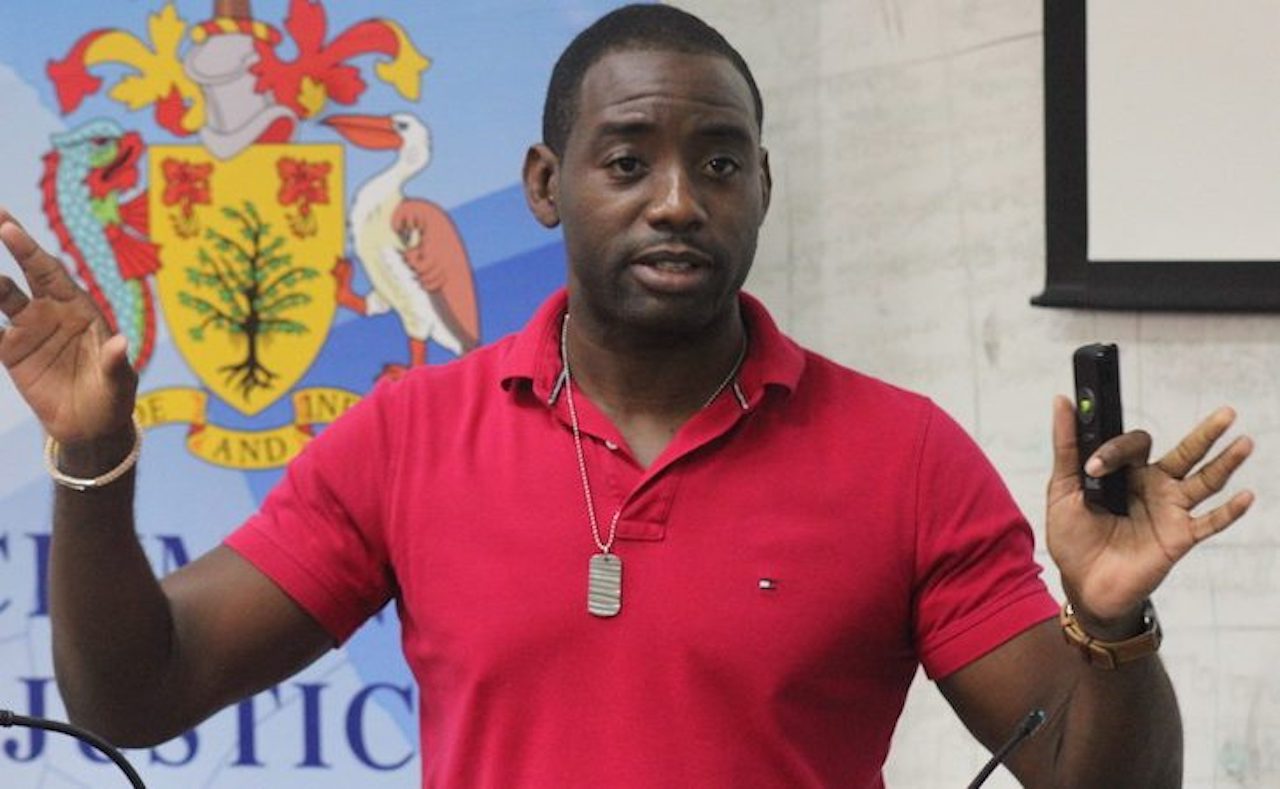As several public schools continue to be plagued with environmental issues, an expert on the workplace has called for an extensive customised maintenance programme to meet the individual needs of each school plant.
In an interview with Barbados TODAY, Professor Dwayne Devonish, a University of the West Indies lecturer on organisational behaviour, management and workplace performance and productivity, also insisted that a detailed environmental safety audit be conducted at each school to determine the extent to which the facilities require maintenance.
He said that just like other government buildings, schools were subject to below-par maintenance and this was the key reason the institutions, as well as their occupants, were falling sick.
“What you would find with sick building syndrome is that this particular syndrome has been haunting Barbadian public spaces because of insufficient or inadequate maintenance response.
“So what effectively happens is that you have these facilities or physical units, whether they’re buildings or rooms, developing a lot of significant environmental issues that are not properly serviced. And I think it is creating a risk of respiratory illnesses,” Professor Devonish said.
The authorities need to act swiftly to craft a proper maintenance schedule before the situation worsens, he argued, adding that the health of the nation’s children and educators is at risk.
For the past several weeks, several schools across the island, including Ann Hill, Lester Vaughan, St John’s Primary and Luther Thorne Memorial have been making headlines as teachers and parents protested environmental issues affecting those schools for years.
Professor Devonish said sick building syndrome was becoming too common in the public sector and “we need to have a better and consistent monitoring and evaluation programme for the maintenance of these facilities”.
The academic said that while the government has a school summer repair programme in place, it was not adequate to deal with all the issues.
He said: “It’s not just the consistency of maintenance that matters, but it’s the coverage and the comprehensiveness of the maintenance. No two schools are alike. But if you have what we call a kind of a generic maintenance schedule or programme which probably looks at cleaning and repairing or servicing certain items, you will have that recurring problem of environmental issues until you have something that is more bespoke or customised where you look specifically at the issues.
“So, instead of acting in a kind of reactive way, as what we are seeing now, you should be proactively conducting what is typically called environmental safety audits. These audits look at the specific environmental risks and hazards for different buildings or different school facilities and determine what unique and common areas of risks and hazards exist. And then you specifically treat those problem areas.”
Professor Devonish urged audits to determine if there has been a significant improvement.
“Another thing that we don’t do – when you engage in the servicing or the maintenance of those areas, you have to be able to go back to see what you have done; if you actually made a change. Let’s say it is a mould issue and you replaced some material but the root problem was never addressed. So then the new wall that you put in place of the old wall with mould, starts generating more mould. So you have just placed a plaster on a wound and not dealt with the root problem of the environmental issue,” he said.
Due to cost restraints, Professor Devonish said that often the root cause of the problem was left unresolved.
He said: “We can’t get to the root because we might find that the root problem is too costly. So we address the symptoms of the problem instead. You see, the other knock-on effect that is created includes the fact that there’s a rising cost when you don’t maintain consistently or properly. So there’s more costs.
“So I don’t think the underlying problem is mould. In many of the cases with the schools, mould is part of the symptoms of the underlying problem because the question is ‘what led to the mould?’”
Referring to the Safety and Health at Work Act of 2005, Professor Devonish noted that an employer is legally bound to ensure his/her employees work in a comfortable and safe environment.
He said the law “makes it very clear that the environmental health and safety is a main requirement for employers to meet because all employers have a duty of care to ensure that any workplace, whether that workplace is a school or a restaurant or supermarket or gas station, should be fit for individual working and welfare”.
Professor Devonish expressed concern over the safety and health of the occupants of the school buildings, especially the children who were constantly falling ill, adding that “the Act extends beyond the workers . . . . It extends to the interfacing of other people in the same workplace environment”.
As the government seeks to reform the educational system, Professional Devonish also said the sick building syndrome was a main point of concern, although he was satisfied that it was at least mentioned in the policy framework.
“There’s a major component that has been addressed in the policy that speaks to the remediation of the physical environment of the school,” he said. “As part of the digitisation and integration of technology, they’re also looking at improving the environmental features of the school to ensure that the school is conducive to work and study. So, to be fair to the [education] ministry, it is a major item but the question is always implementation and if things would be adequately budgeted for.”
sheriabrathwaite@barbadostoday.bb




